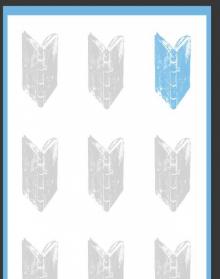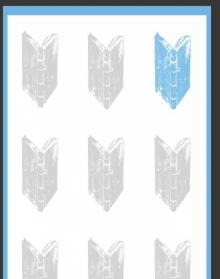- Home
- Storm Jameson
The Black Laurel Page 11
The Black Laurel Read online
Page 11
The next day, from an early hour, he worked in the National Museum. He had chosen for himself, as his office, a small room on the top floor. He liked to feel himself shut off; what he liked was a room into which he could burrow. When he had turned round once or twice, fitting on himself the leather chair not occupied since its first owner was packed off to Auschwitz, he went downstairs again, to the main rooms, to stretch a greedy neck over the cases stacked to the ceiling and crammed dearly with the contents of famous collections brought here at the outbreak of war, for safety. How convenient that was! He had a box opened, at random. His heart quickened with joy when the men lifted out one, then others of the Canalettos from the Royal Castle. They were scenes in Warsaw itself, so solid, airy, and blown through by a clear light, that they might have painted with sounds instead of colours — still there, he said to himself, the myth of the city played into being by a man fingering a reed. He was delighted. Only let me get them safely away, he thought, with abrupt anguish.
He ordered them to be repacked and set apart.
In one of the rooms he noticed a cabinet, inlaid with silver discs of the sixteenth century; they were engraved with extreme delicacy. He passed his fingers over them — they were less fingers than the sensitive antennæ of hands swollen out of shape, and they confirmed at once the suspicion he had had at sight, that out of the fourteen discs three were clever imitations. His assistant — a lecturer on art in the university of Königsberg, now with the same energy and skill a member of the Gestapo — had crept up behind him: he was a nocturnal little animal, and disliked having to cross a large shadowless room in daylight. Leist turned to him.
“The discs are worth more than the cabinet. Get them off.”
“I doubt if I can do that without destroying the cabinet.”
“It doesn’t matter. . .”
Lying in bed the next morning, he was torn from a half sleep by the noise of machine-guns. It was near and almost continuous: heavier guns began farther off; the sound circled and returned as if an enormous steel spring were contracting and expanding over Warsaw and inside his head. He dressed quickly and went downstairs.
He could not bring himself to speak to one of the officers who had ignored him. He went into the street. Outside the hotel he was at once stopped by soldiers. He tried to bully his way past. It was no use, and he was working himself into a rage when Frey appeared and asked him pleasantly to stay in the hotel.
“What’s up? Don’t be silly, I must go to the Museum. I haven’t time to waste. If the Russians are advancing. . .”
“No. Not the Russians. A rising.”
He made a curious gesture, spreading both his hands as if he were shielding something.
“Poor devils.”
“What do you mean?” Leist demanded. “D’you mean to tell me that these people — gutter-rats, women —” he saw the profile of the young woman turned to the wall in the street, exposed not only to the grinning soldier. “What nonsense!”
“Not quite that,” Frey said.
“Well, if it’s only local trouble, why shouldn’t I get on with my job?”
After a brief hesitation, Frey wrote out a pass and had it signed by his colonel. Leist went off with it at once, afraid, if he waited to eat breakfast, of being stopped. His assistant was not at the Museum, and did not come, and he busied himself sorting and marking the cases he intended to send off first. In the late afternoon a terrific noise entered the room, the clatter of feet, rifle-butts, voices. He hurried to the entrance hall and saw what might be a battalion crowding in from the courtyard. An officer who was standing there asked him in a curt voice who he was and what he was doing.
He answered with arrogance.
“And you? Why are your men here?”
“They are quartered here.”
Stupefied, he watched for a moment arms and kit-bags being dragged past him into the rooms.
“Why not put them in the cellars?”
“What the devil do you mean?”
There were still paintings, tapestries, cabinets full of priceless glass, coins, prints, in all the rooms. He was horrified. He would go at once to the Governor-General and get the invaders removed. Turning, he ran into the courtyard. The street beyond it was swept by dense waves of smoke from the burning houses. He clapped his hands to his ears. The noise he had heard all day, without paying it more attention than a storm, broke over him in a frenzied vibration of high explosive and bombs. He reached the gate into the street. Two soldiers leaped on him and pushed him back. He had seen for himself that it was impossible to go through the streets. He ran back, dodging between lorries jolting into the yard through a gap in the wall, and ran up the steps.
He was ashamed of his moment of panic. He found the officer and showed him the pass signed by Frey’s colonel. The man, a colonel, glanced at it and tore it up.
Somewhere below his anger he felt fear and respect.
“Do you realise that I’m here attached to the Governor-General himself? That my job is to secure collections worth millions of marks — among which you’ve pushed your men?”
The officer scrutinised him. He was indifferent, but less hostile.
“I’m afraid the only thing you can do for the time being is to stay here. I don’t suppose you have anything with you? I shall be delighted if you will share my meals.”
In spite of himself, he was gratified. He would not show it too soon. He growled,
“How long shall I be shut up here?”
The officer shrugged his shoulders.
“I really don’t know. A week. Ten days.”
He was there a month. He imagined at first that he would be able to protect things. But at once he discovered that he had no authority; no one of the soldiers recognised his authority: when he realised it he reminded himself of the phrase always on his grandfather’s tongue: What can’t be cured must be endured.
To avoid the humiliation, intolerable, of having his orders flouted, he ceased to give any. He became the detached observer — always with the hope, turned over in secret, of being able to punish.
One evening, he went into the gallery where, still in their glass cases and cupboards, were hanging robes, coats, uniforms, of eight centuries: some, finely embroidered, stiff with interwoven gold or silver threads, stood about like marionettes, others hung caressingly in folds, as if they had only just slipped from the body of a nobleman of the fifteenth century or one of yesterday’s peasants. He found a masquerade going on. Keeping out of sight he watched soldiers tearing the costumes impatiently across in their haste to get one off and try another: they were enjoying themselves. A tall fair-skinned young man walking about in a woman’s long robe had a crazy success; when one robe had been stripped from him in rags he hurried to put on another, and a third.
Kneeling on the floor, one of the most wretched of the soldiers, a skinny wharf-rat, was cutting in pieces one superb coat after another, with an absorbed air, a child amusing and avenging himself. His hands moved like insects through the rich stuffs.
“Here,” a corporal said to him, “give me that sash.” The man held it up and watched shrewdly the corporal’s knife rip away the gold fringe.
“That’s an idea.”
“It’s worth money — all that gold.”
“Over there — ” he gesticulated vaguely with an arm like a bone — “there are dozens of them.”
“Oh, are there? My old girl — I don’t know how she sticks it in Hamburg now, with the kids, she’s no Garbo, I can tell you, but never mind — she can do with a few of these. Five of them, all girls.”
He went briskly off. The other gazed for a moment at the mutilated sash, dropped it, and went on with his task, as methodical as you please, not glancing up even when the fun, becoming brutal, started a frenzy of tearing-up that made his own labours silly.
Leist withdrew.
But another evening, anxiety — for the Canalettos — drove him to walk boldly into the hall of mummies and Egyptian sarcophagi. Pri
nts and canvases had been set up against the wall, and the men were sending arrows into them from the old catapults. A boy found this dull, and as Leist came in he began to cut his initials in a Poussin, firing at it with his revolver. Leist made sure that the Canalettos were safely in their boxes and out of sight. To put himself right with the men, he clapped the triumphant finish of the last letter. The boy had started a fashion. It was the rage until a man — the same corporal who had been anxious about his wife and little girls in Hamburg — had the more amusing idea of bayoneting the mummies. In a few minutes these were set on and you might say killed, and their tombs broken up.
Leist had no feeling for Egyptian bodies. It struck him as a curious trick of history that these had waited so many centuries to die at the hands of a handsome yellow-haired German like that boy who dragged one the length of the hall before finishing it off gaily. So much for immortality.
He imagined a faint odour of spice clinging to these heaps of wrappings. It vanished before he could be certain of it.
Others of the men’s habits vexed him. The Gobelins tapestries disappeared from their wall; they were being cut up into squares and used as blankets. The cooks, he discovered, were taking Limoges enamels of the sixteenth century to hold food in the ovens: outside the room that had become their kitchen, the heap of smashed plates and dishes rose nearly to the ceiling. He picked up a fragment. He knew it at once; the work of Pierre Courteys of Limoges, a small masterpiece of delicacy and vigour. A current of pain ran from his finger-tips to the nerves of his chest: he dropped it quickly. A day or two after this, when he saw orderlies throwing from a window another heap of broken Renaissance glass and pottery — the men ate off it — he felt only a strange exhilaration. For the death of one piece he could suffer, but this holocaust excited him, as if he were taking part in a rite. Let everything go, let the past vanish, let Europe itself vanish in the destroying flames.
If we cannot have a monument of peace, let it be a monument of ruin, cries, dust.
He went up to his room. The door of the room used by the younger officers as a bedroom was open, and he could see, thrown down confusedly on a bed, a number of swords and rapiers taken from one of the show-cases: no doubt the handles were the attraction, jewelled or inlaid with gold or enamel. Nobody was in the room. He went in. Lying among the swords were coins, Greek, Roman, Byzantine, many of them gold, all of great value. They have more sense than the men, he thought. He chose six coins, the most valuable and the most beautiful. Taking them to his room, he sewed them carefully into the waistband of his breeches. He felt a deeply consoling joy: it was not only that they were worth a great deal of money, but he had saved them from greedy ignorant hands on whom the mute language of the centuries pressed in vain. With the clearness of hallucination he saw the craftsman, the Greek slave, the Alexandrian goldbeater, bent over his work. Working for me, he thought, for me, the heir.
The pungent smell of scorched brick and wood filled the room. He had no need to glance at the window to see that another quarter of the city was on fire. During most of the day, the heavy guns had been silent; they started up now in a burst of ill-temper that made his own muscles contract and the pupils of his eyes fix themselves in a stare. There was a silence. Then, close at hand, a cry rose, the cry of extreme anguish, ending in a whimper. He heard a single shot, and a second.
There were moments — this was one — when he felt an anxiety which had nothing to do with the present, with his confinement in the Museum: it was that terror sharpened by anger he had felt as a boy when he reflected that one day he would die. And there was no escape: run as you please, crawl, take to the air, one day your neck broke against the wall imprisoning you in your life. Such life, a prison, had no sense. No more than these days passed in a museum which was foundering under him. He felt a terrible impatience to be done with it.
After supper that evening, he asked with an air of indifference how things were going outside.
The colonel opened his hands, and let them fall heavily on the table: his voice expressed contempt and an equal indifference.
“It shows you the abysmal silliness and frivolity of Poles. Their so-called leaders must have known the strength of our concentration here — of course they knew! Yet they take the risks of fighting in a city crowded with civilians. Why? God knows why. Vanity, madness — how do I know? Poles are vain as well as quite mad. Well — the people of Warsaw are paying dearly for it.”
Under his coldness Leist felt a wish to be friendly. He seized the chance.
“Look here, colonel, I’m not asking for favours, but what about the way your men are destroying things? Absolutely irreplaceable — worth a fortune.”
“What do you expect?” the colonel said mildly: “the men are overfed, they’re excited and over-stimulated — who knows if he’ll be alive next week? — they’re a long way from home, and the tameness of domesticity is wearing thin now — and after all, between cut throats and cutting up tapestries, the second is at least innocent. Animal spirits, my dear fellow.”
“The throats are replaceable.”
“There must be hundreds of lorry loads of stuff still here, far more than you’ll ever get away.”
Leist put on an air of good-humour and frankness.
“Lend me a few men to move some of the things into a room that can be put out of bounds.”
“Well, why not? Which room would you like?”
They went downstairs. Leist pointed to the heaps of excrement among the torn perforated canvases and broken pieces of sculpture.
“Is that what you call animal spirits?”
The other man shrugged his shoulders and did not answer. Leist remembered having read somewhere that infants and very young children think of their excreta as gifts they offer a mother or nurse so that they will be taken notice of and loved. How inarticulate and deep must be his countrymen’s wish to love and to receive love, to be so manifested in the houses in every country he invaded. For some reason, the colonel chose to go down to the cellars. They were filled with women, children, and old men, hundreds on hundreds of them, who had been herded in here when their houses were going to be burned; they lay on the concrete floors, like shadows or like a heap of larvæ: when they saw the two Germans a few skeletal arms were held out, and a child’s hoarse voice asked for bread; he asked in his own language first, and then in German; he held the foreign word in front of him to propitiate them. He may have been used to hunger but he was not used to dying.
The colonel said nothing when they left the cellars: he went to his room, leaving Leist uncertain whether he meant to do anything to save the paintings. Dissatisfied, he wandered into the outer hall. A small group of soldiers had a young Pole in their hands; they had been beating him, and his face with its hideously swollen lips was black, he looked for all the world like a negro — he was quite a curiosity. One of the soldiers stopped Leist and asked if he would photograph the five of them with their false negro. One of them had his camera. They grouped themselves round the Pole, smiling into the lens, ingenuously delighted and happy.
He handed back the camera to its owner and turned away.
As if for the first time, he saw, yes, saw, the desolation of the Museum. It advanced towards him like a reflection in a mirror, detaching itself from a darkness in which he himself moved. One image succeeded another, shadows behind shadows, the work of centuries of cunning hands, the fevers and tranquil joys of minds, the forms, barely on speaking terms with each other, taken by the human spirit in its effort to understand itself — they had become spoiled canvas, shattered marble and glass, splinters of wood, torn stained manuscripts. He felt a sudden pressing need to add his offering to those lying about among the debris. It restored him. Coldly annoyed with himself, he went upstairs.
The following day Warsaw capitulated. As soon as he heard the news he hurried out. Along the whole length of this wide street and in every way he looked, were only scorched and blackened walls; its houses had become heaps of refuse from wh
ich curls of smoke rose in the September sunlight. The stench was abominable; the whole city smelled of corruption and death. Suddenly a gust of wind smothered him in pieces of scorched paper, brittle and curling over, like dead seeds. A library was on fire. Something clung to his sleeve, a page from an illuminated manuscript, its colours faintly visible in the blackened surface. He shook his arm to get rid of it.
To his relief, the Polonia was still there, and unhurt. He went up to his room. From this window he saw that many buildings and streets were standing in the ruins of others. He decided to go out and look. When he was on the lowest flight of the stone staircase he saw Frey below him in the hall. He looked exhausted and ill, but he agreed, almost as if pleased to be asked, when Leist suggested going out.
They turned the corner nearest the hotel, into an almost undamaged street. Suddenly a young woman ran out of a house. She hesitated for less than a second, then threw herself on her knees before Frey and stretched her hands up, without touching him. She spoke in German, in a strangely cool voice, though clearly she was in agony.
“You seem decent. The soldiers are killing everyone — a child spat at them from a window. Please stop it.”
“Who is doing it?” Frey asked. “S. S. or soldiers?”
“Soldiers.”
He rubbed his hand over his face, slowly.
“We used to be civilised,” he said.
He went as slowly towards the house. She got up and ran after him. Leist watched him enter the house, then he turned and walked the other way. Frey’s interference seemed a gratuitous folly.
From this day, and for four months, he worked desperately to send out of the country everything he could pack. He had ten of the S. S. working to load the cases on to lorries, and at first had no doubt that he would save everything worth the trouble of saving. After a few weeks he had the sensation of moving in open country, in sight of an enemy. It was not only the Russians, and the rumours from that side. What was left of Warsaw was being demolished, house by house, quarter after quarter, by the trained detachments of the S. S. The sense of urgency he had sprang on him from this ceaseless and coldly methodical destruction. It was being hurried on. One after another, the great libraries, the archives and collections of old manuscripts, with the buildings that sheltered them, were burned down. The past of this absurd people was being effaced in only a few weeks: with luck, nothing of it, when the armies withdrew, would be left here; and its riches, which it had no right to possess, would be in nobler hands.

 Company Parade
Company Parade The Lovely Ship
The Lovely Ship The Moment of Truth
The Moment of Truth The Road from the Monument
The Road from the Monument The Journal of Mary Hervey Russell
The Journal of Mary Hervey Russell The Black Laurel
The Black Laurel A Day Off
A Day Off